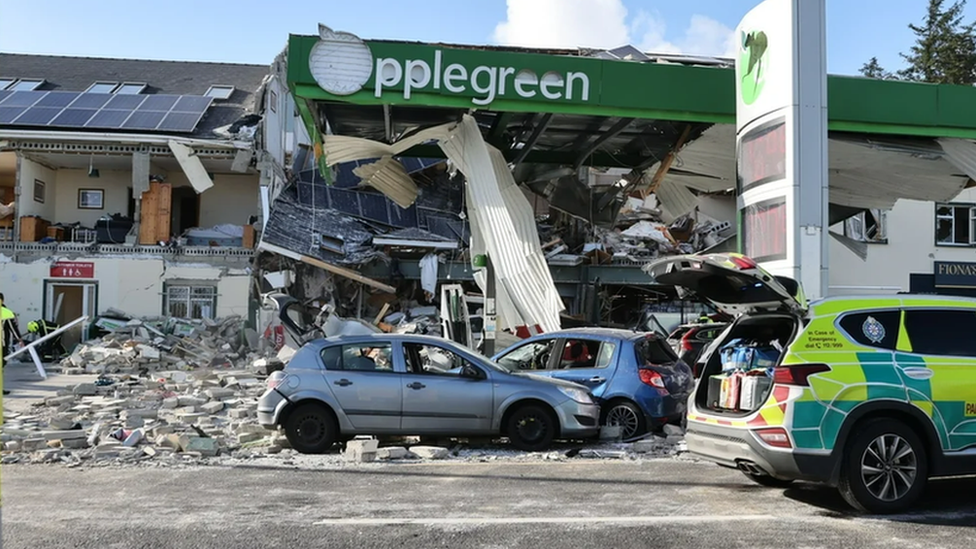Creeslough explosion: Village 'only beginning to cope with tragedy'
- Published
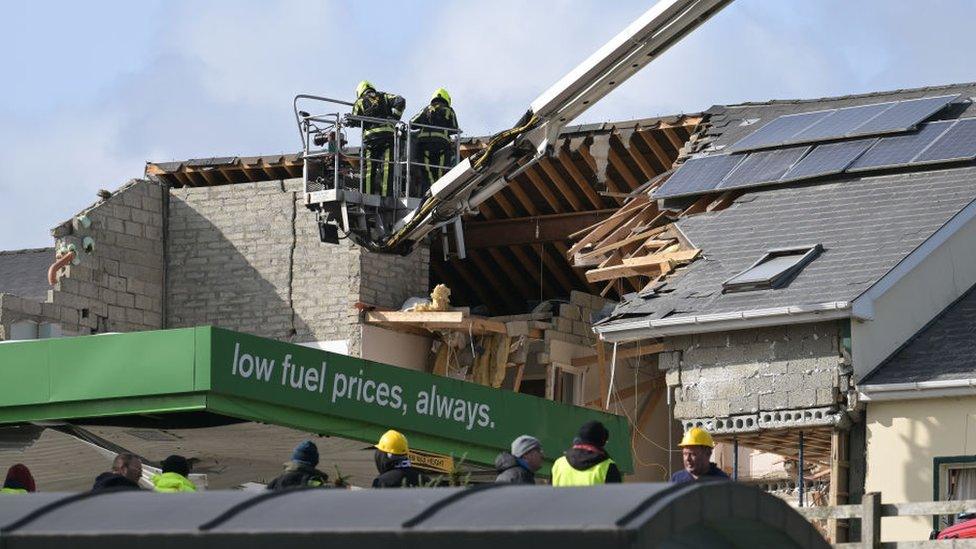
The service station and an apartment block were ripped apart by the blast
The deaths of 10 people in an explosion in Creeslough is only beginning to dawn on residents now in many ways, a GP from the village has said.
Dr Paul Stewart said the recovery process would take months and years.
On Friday, the County Donegal village will mark four weeks since the blast that killed 10 people.
A counselling service set up to support people affected by the explosion has been accessed nearly 200 times, the Irish Health Service has said.
The explosion happened at a petrol station on 7 October.
Dr Maura Finnegan from the Health Service Executive (HSE) said work to help the community cope was ongoing.
Dr Finnegan, a lead clinical psychologist, told BBC Radio Foyle the HSE had been working with the community and other agencies, including educational psychologists in local schools, to support those affected.
"To date we have almost 200 sessions delivered in the community or over the phone," she said.
"Some people have accessed services on a number of times".
Additional support, Dr Finnegan said, had been targeted at a number of specific groups including the bereaved, the injured, first responders and those who had been made homeless, as well as the wider community.
Creeslough is a small village in the north west of Ireland, about 15 miles (24km) from Letterkenny and 30 miles (48km) from the border with Northern Ireland.
It has a population of about 400 people.
An Garda Síochána (Irish police) previously said the explosion appeared to have been an accident.
The victims - four men, three women, two teenagers and a five-year-old girl - were from the village or surrounding areas.
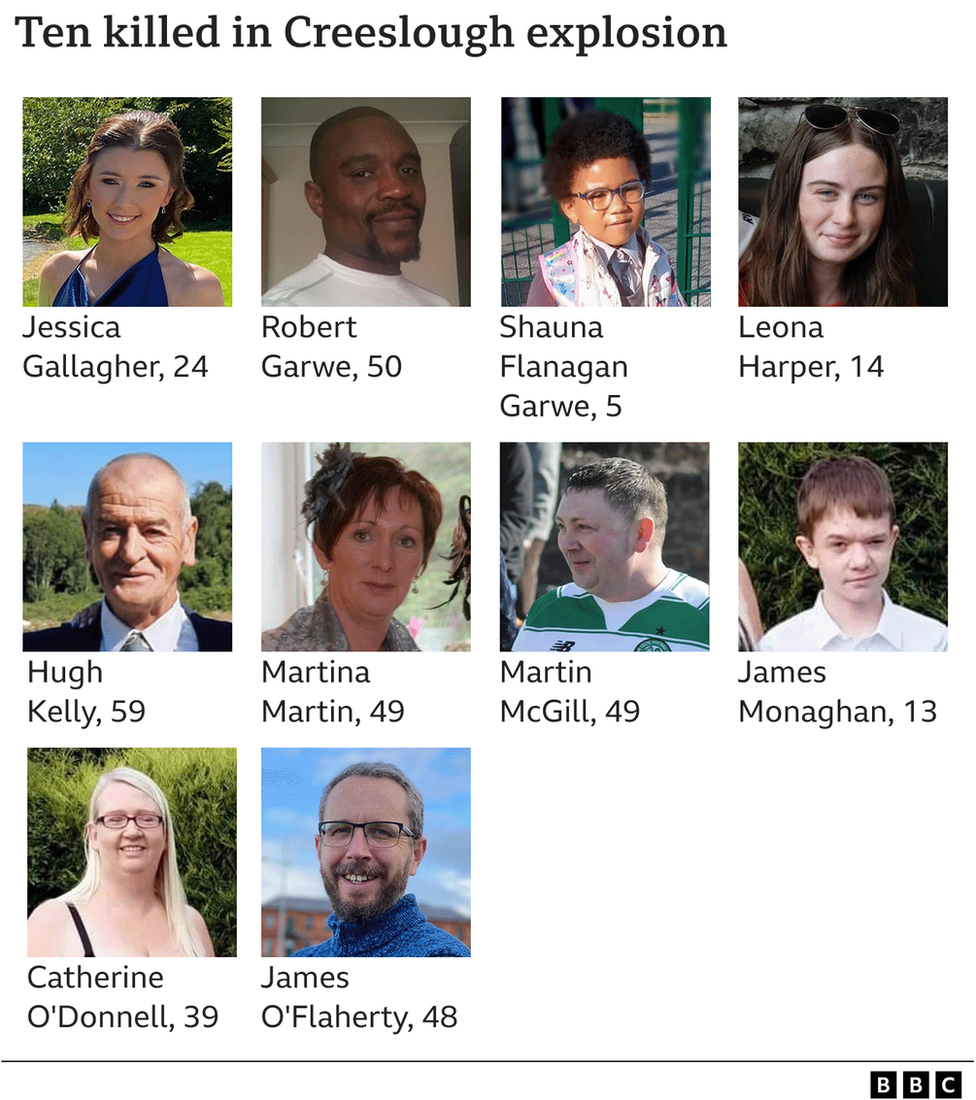
In the immediate aftermath of the tragedy a "psychological first aid" service, was set up to help people come to terms with the tragedy, Dr Finnegan said.
It helped people "understand what they are experiencing, often very big and intense emotions people haven't felt before".
The numbers of people coming forward was falling four weeks on from the explosion, Dr Finnegan added.
"That would be typical in this kind of situation because the immediate needs of people have more or less been met and we are moving into a different phase of the response now," she said.
Creeslough GP Dr Stewart said for many, it would take "months, years to try and out this together".
Some, he added, "will never recover".
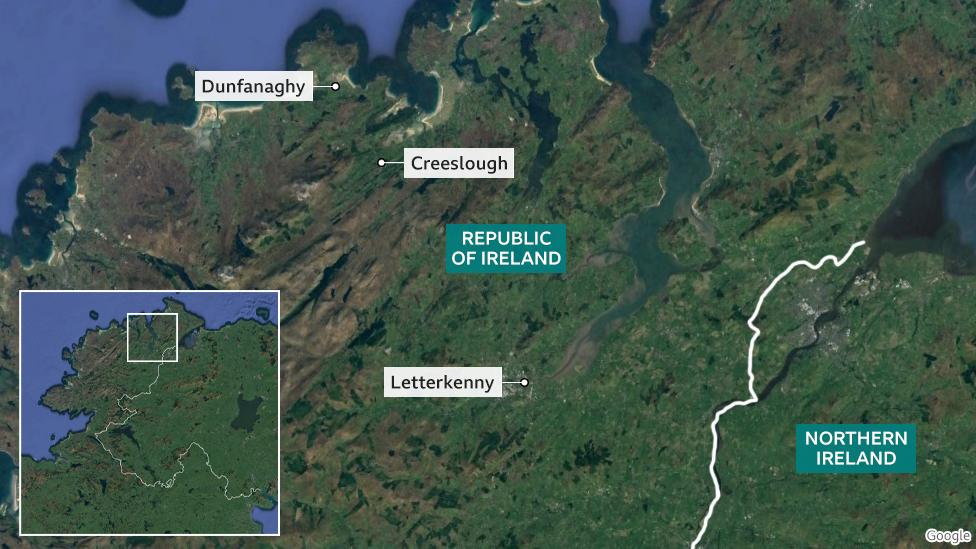
Dr Stewart, who grew up in Belfast, was among the first responders.
"I grew up in Belfast in the 70s, had seen a number of bombings; it was just like a bomb had gone off - there was rubble everywhere," he said.
"There were people there with diggers, with their bare hands, pulling people out."
He said a Mass, due to take place in the village to mark one month since the tragedy, would be challenging for some.
"It is going to be difficult, it is heart breaking, and only beginning to dawn on people now in many ways," he added.
"Someone said it was like one of these disaster movies, it just didn't feel real at all, that it could happen in a small village like this in the west of Donegal."
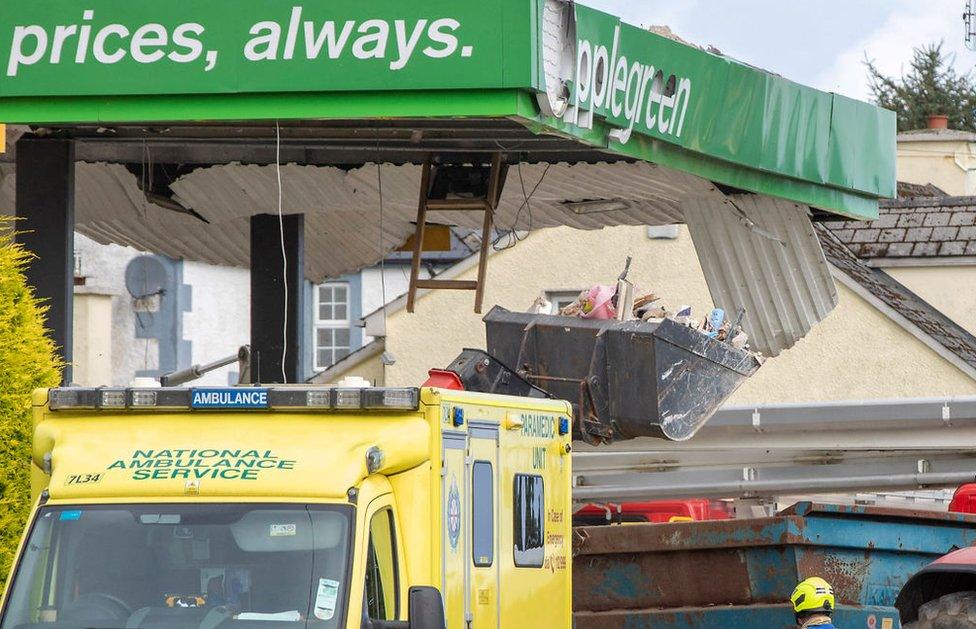
The Applegreen shop destroyed in the explosion was a regular stop for people in the village
Garda Brendan O'Connor, the Donegal spokesman for the Garda Representatives Association, said gardaí (officers) were deeply affected by what they saw and worked through.
"They have also been deeply touched by the genuine warmth and support of the community," he said.
"Our members are availing of the welfare services, talking to each other, reaching out and there is a very strong sense of looking out for each other that is carrying people."
He said the same gardaí who were there on the day shifting rubble and working through the night also attended the funerals.
"They are still here preserving the scene and assisting with the investigation," he said.
Last week gardaí said more than 500 lines of inquiry had been opened and more than 260 statements taken as part of the investigation into the explosion.
Related topics
- Published17 October 2022
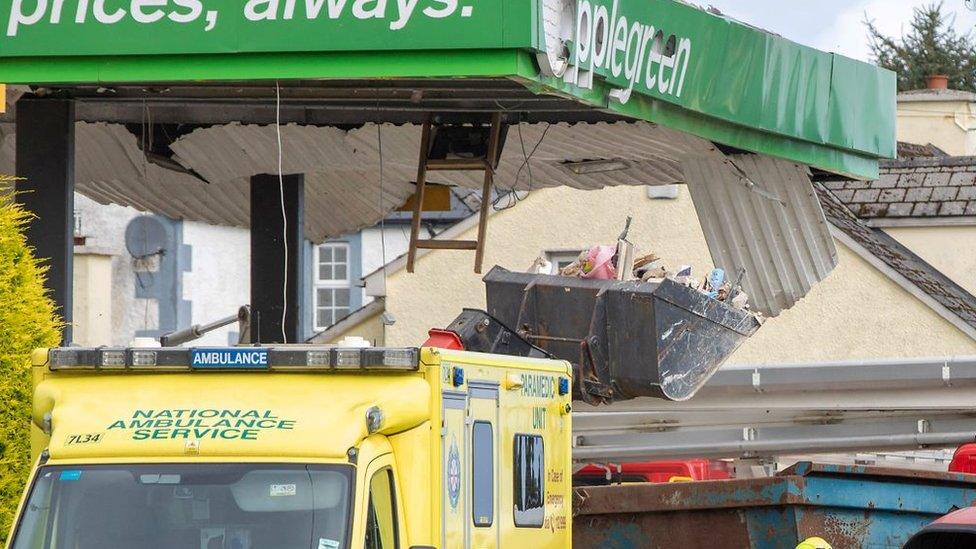
- Published10 October 2022
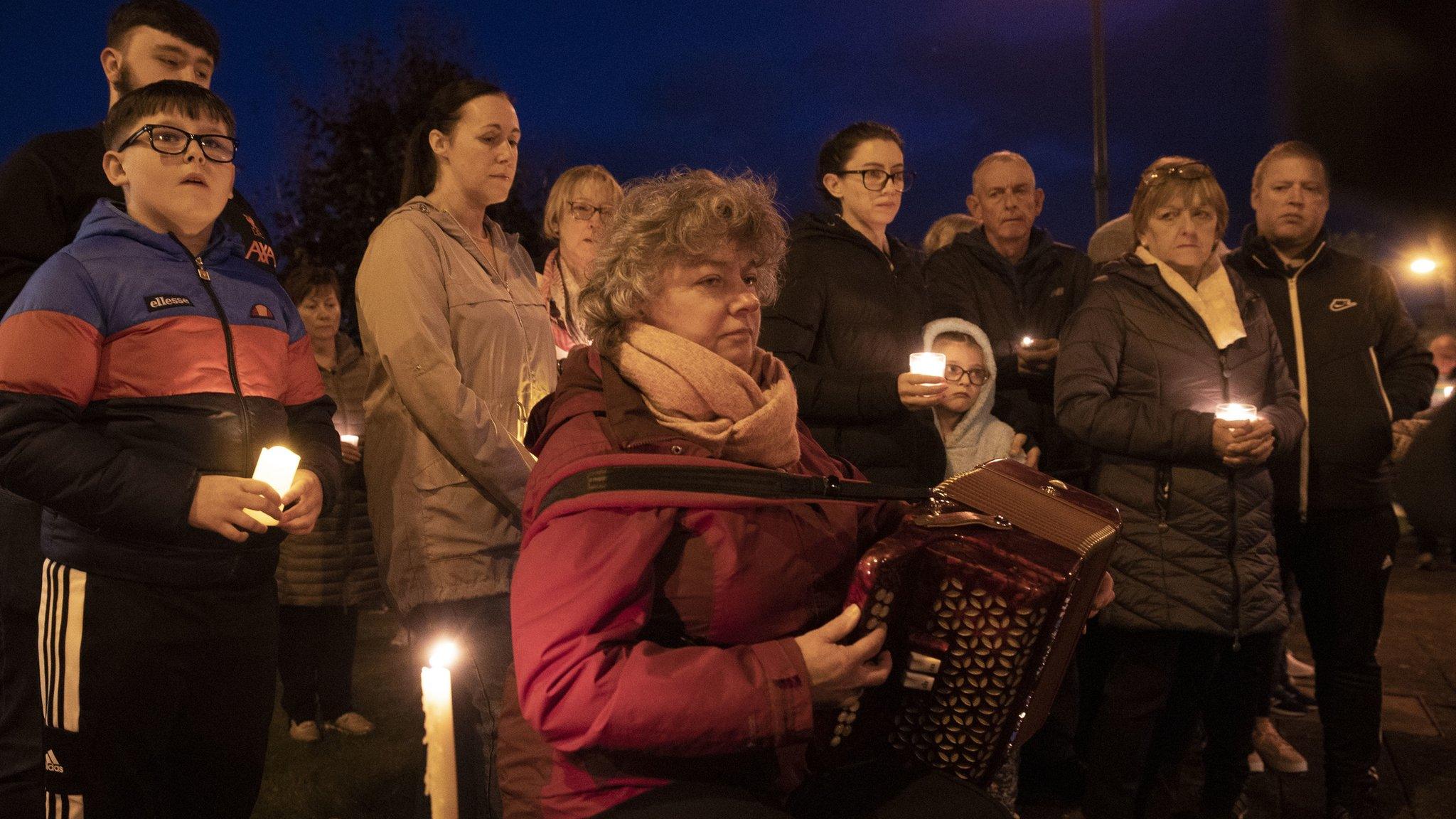
- Published9 October 2022
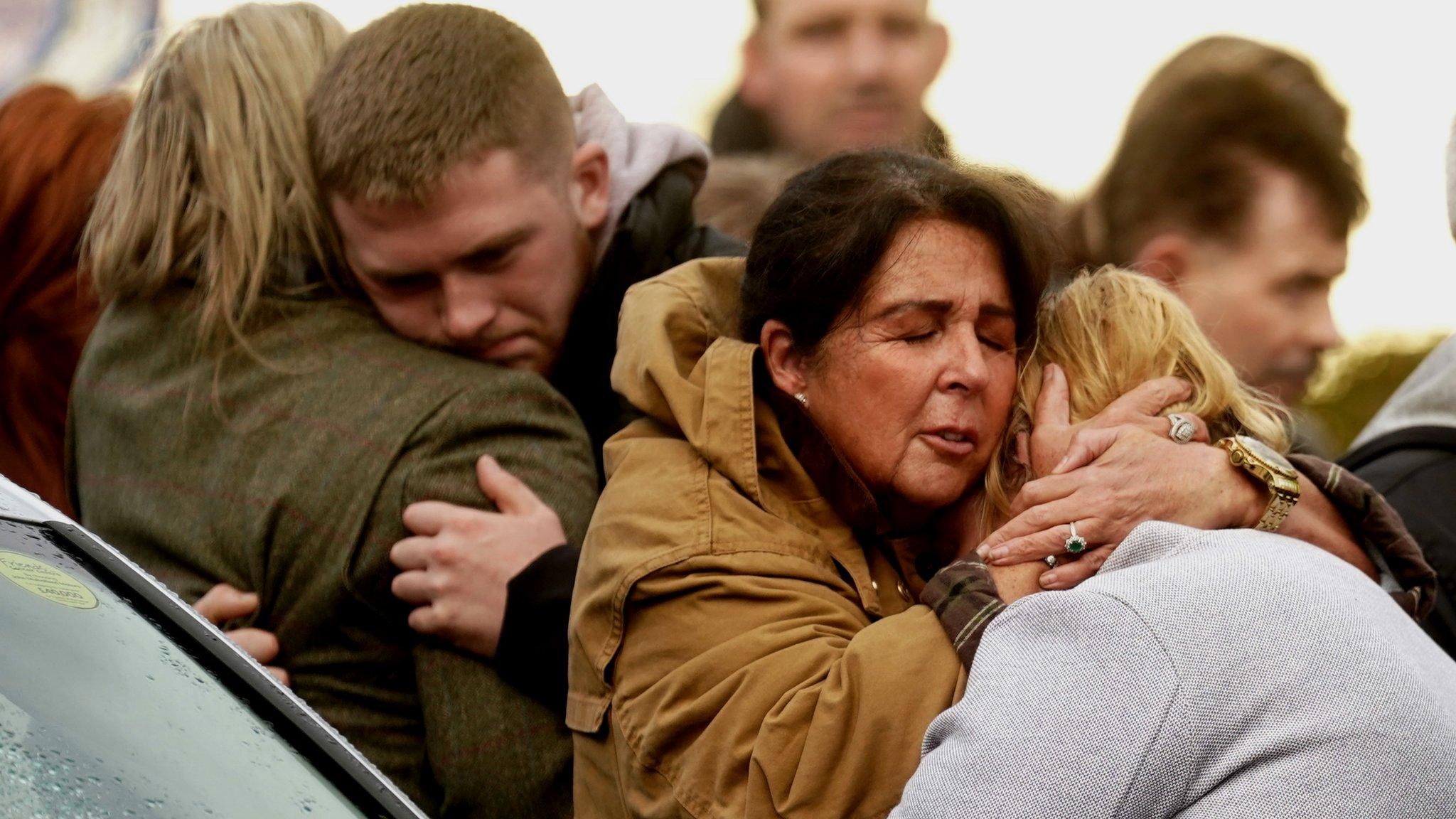
- Published8 October 2022
